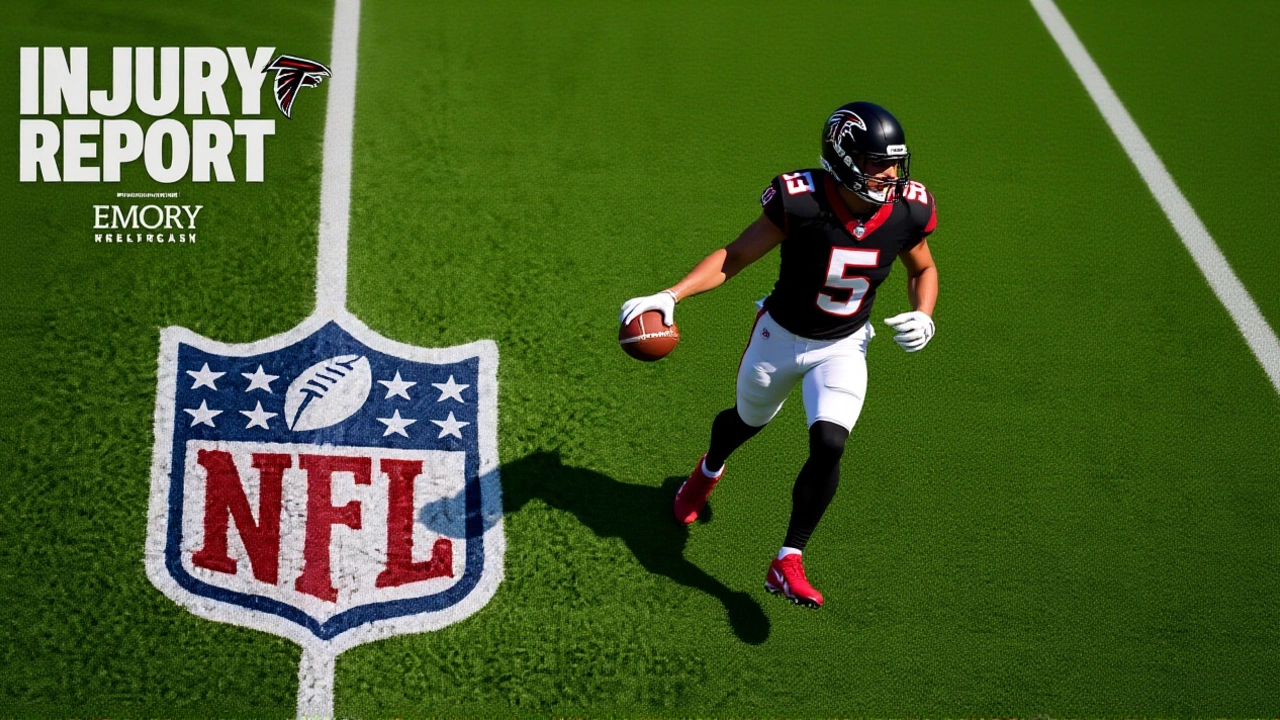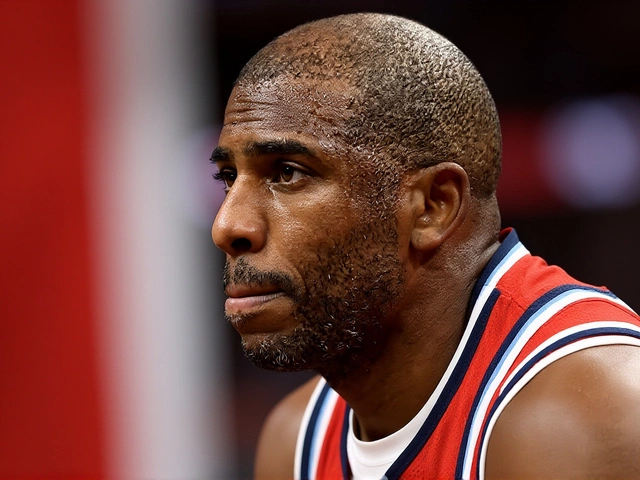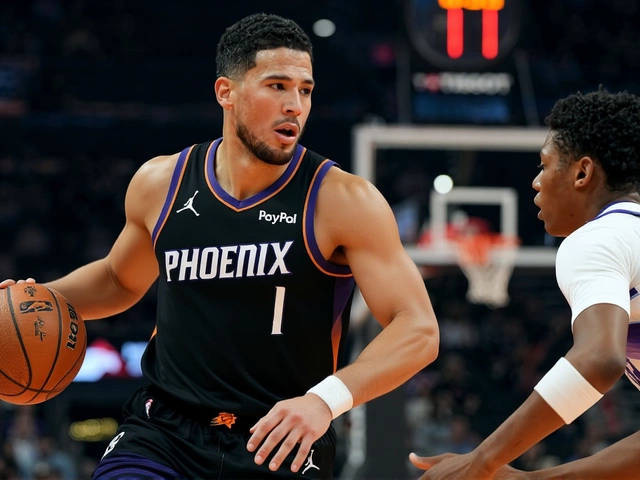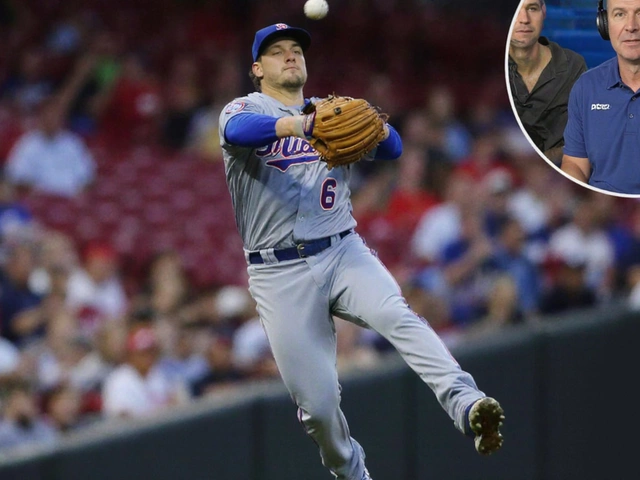Drake London won’t take the field Sunday against the New Orleans Saints—and with him gone, the Atlanta Falcons’ playoff dreams are slipping through their fingers. The 24-year-old wide receiver, who had become the team’s most reliable offensive weapon, was ruled out for Week 12 after suffering a PCL sprain in last Sunday’s heartbreaking overtime loss to the Carolina Panthers at Bank of America Stadium in Charlotte. The injury, confirmed by team officials on Monday, November 18, 2025, and later reported by NFL Network’s Ian Rapoport and The Athletic’s Josh Kendall, is serious enough to sideline him for at least one game—but not severe enough to land him on injured reserve. That’s the twist: he’s week-to-week, not out for the season. But with the Falcons now 3-7, every missed game feels like a death knell.
London’s Breakout Season Cut Short
Before the injury, Drake London was having the kind of year that turns promising players into stars. Through 10 games, he’d racked up 810 receiving yards—fifth-best in the NFL—and caught 63 passes. He had five 100-yard games in his last six outings. ProFootballNetwork.com had him ranked 10th among all wide receivers in impact, and his projected season total—1,530 yards and 11.3 touchdowns—would’ve shattered his career highs. He wasn’t just a target; he was the offense’s heartbeat. When quarterback Michael Penix Jr. went down with a partially torn ACL in Week 10, London became the only consistent threat the Falcons had. Now, with both gone, the offense has lost its two most dangerous weapons in a span of 11 days.
The Quarterback Chaos
Penix’s season-ending injury forced the Falcons to turn to veteran Kirk Cousins, who hadn’t started a game since Week 1. He’ll now lead the offense against the Saints, with Easton Stick and Kyle Trask as backups. It’s a band-aid on a broken arm. Cousins has played well under pressure before, but he’s 37, coming off a bench role, and hasn’t thrown a single pass in a Falcons uniform until now. The chemistry? Nonexistent. The timing? Nonexistent. And without London to stretch the field, defenses will swarm the short routes. The Falcons’ offensive line, already struggling, will be under even more pressure.
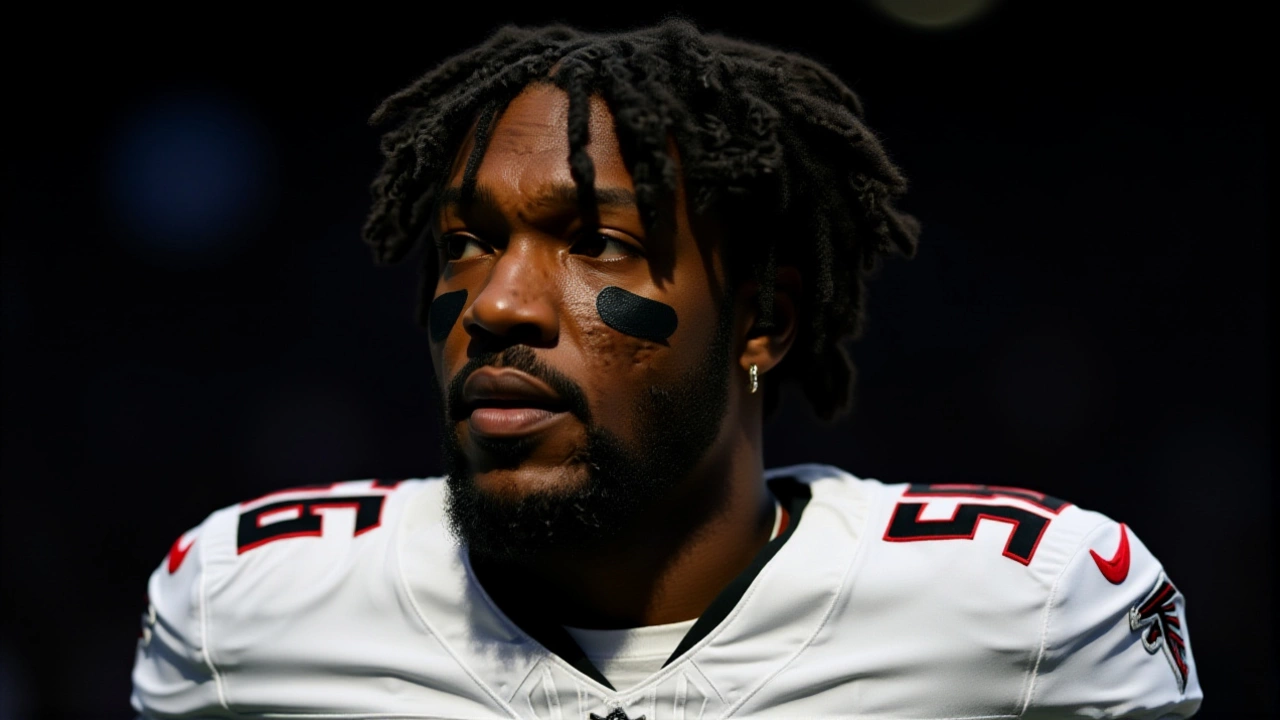
Who’s Left to Catch the Ball?
With London out, the receiving corps has been reduced to a patchwork of journeymen. Darnell Mooney, once a reliable starter in Chicago, has seen his production drop sharply this year. David Sills, a former fifth-round pick, has shown flashes but lacks consistency. KhaDarel Hodge and Carlos Washington Jr. are depth pieces who’ve spent most of the year on practice squads. None of them have the size, route-running precision, or playmaking ability London brings. Against a Saints defense that ranks 12th in the league against the pass, this is a recipe for disaster.
More Than Just Offense
The Falcons aren’t just hurting on offense. Their defense has been leaky all season, but there’s a glimmer of hope: Divine Deablo, the inside linebacker, returned to practice on November 20, 2025. He’s not yet cleared to play, but his return could stabilize a unit that’s given up 27+ points in four straight games. Still, even if Deablo plays, the Falcons are playing with fire. They’ve lost five in a row. Their last win? October 20 against the Washington Commanders. They’re now 1.5 games behind the New Orleans Saints in the NFC South—and with the Saints coming off a 38-17 win over the Buccaneers, they’re surging.
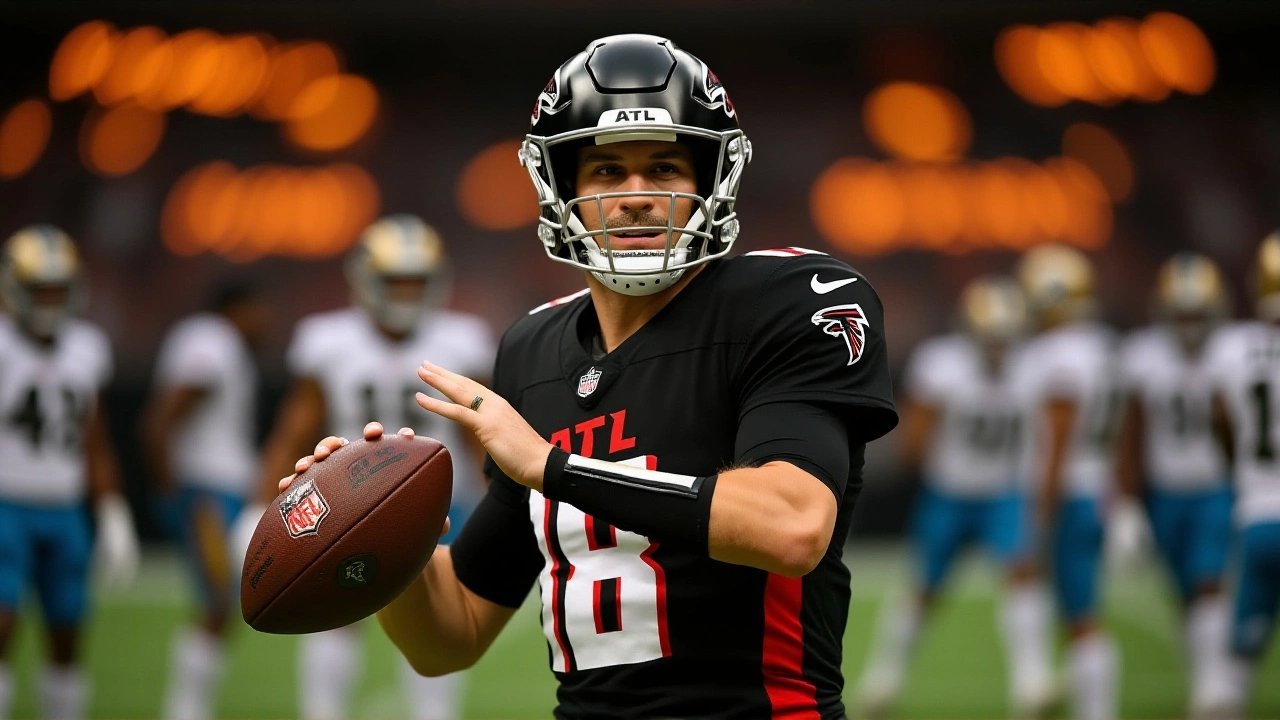
What’s Next?
The Falcons’ Week 12 matchup against the Saints at Caesars Superdome on November 24, 2025, isn’t just a divisional game—it’s a season-defining moment. Lose, and their playoff chances vanish. Win, and they’d need a miracle run: four straight victories, plus help from multiple teams. Even if London returns in Week 13 against the Tampa Bay Buccaneers, the damage is done. The offense has no rhythm. The quarterback situation is unstable. The locker room morale is fraying.
For the Falcons, this isn’t just about one player. It’s about a franchise that’s spent years building toward relevance—and now, in the middle of a rebuild, is being reminded how fragile momentum can be. London was supposed to be the cornerstone. Now, he’s a cautionary tale.
Frequently Asked Questions
How does Drake London’s absence impact the Falcons’ offensive strategy?
Without London, the Falcons lose their only true deep-threat receiver and primary red-zone target. His 6’4” frame and route versatility forced defenses to respect the entire field. Now, with Darnell Mooney and David Sills as top options, defenses can stack the box and focus on short passes. The offense, already struggling without Michael Penix Jr., will likely become even more predictable—relying on Kirk Cousins to make quick throws, which increases pressure on the offensive line and reduces scoring efficiency.
Why wasn’t Drake London placed on injured reserve?
The Falcons kept London off injured reserve because his PCL sprain is classified as a minor-to-moderate injury, not a season-ending one. IR requires a minimum four-game absence, but London’s recovery timeline is "week-to-week," meaning he could return as early as Week 13. By keeping him active, Atlanta retains flexibility—if he heals faster than expected, he can be activated without needing a roster spot to be cleared. It’s a strategic move to preserve depth for a playoff push that’s still mathematically alive.
What’s the history between the Falcons and Saints in NFC South matchups?
The Falcons and Saints have been division rivals since 1970, with New Orleans holding a slight edge in overall wins (54-52 as of 2024). But since 2020, Atlanta has dominated, winning 7 of the last 9 meetings—including a 34-17 victory in 2024 that snapped a four-game Saints win streak. The 2025 matchup is critical because the winner controls their own destiny in the NFC South. With both teams struggling, this game could determine who stays alive in the playoff race.
Could Kirk Cousins carry the Falcons to a playoff run?
It’s unlikely. Cousins has a career record of 22-28 as a starter in games where his team scored fewer than 20 points. With no elite receiving options and a porous offensive line, he’ll be forced into high-risk throws. His 2025 stats (198 yards per game, 1 TD, 3 INTs in limited action) suggest he’s not the answer. The Falcons need a spark, not a veteran stopgap. If they lose to the Saints, it’s almost certain Cousins won’t be the starter in Week 13—even if London returns.
What does this mean for Drake London’s future with the Falcons?
London is under contract through 2027, and the Falcons have invested heavily in him—drafting him 8th overall in 2022. But if he misses significant time again in 2026, questions about durability will surface. His performance this year proved he’s a top-tier receiver. The team’s front office, led by General Manager Terry Fontenot, will need to build around him better next season—better QB play, better protection, and more weapons. Otherwise, this injury could become a turning point: either the foundation of a future star, or a cautionary sign of a system that can’t protect its best players.
How does this injury compare to other NFL wide receiver PCL sprains?
PCL sprains are less common than ACL tears but can be just as disruptive. In 2023, Justin Jefferson missed three games with a Grade 2 PCL sprain and returned without missing a beat. But in 2021, A.J. Green missed five games with a similar injury and never fully regained his explosiveness. London’s recovery will depend on rehab precision—especially since he’s a route-runner who relies on sharp cuts. If he returns too soon, the risk of re-injury increases. The Falcons’ medical staff will likely take a cautious approach, prioritizing long-term health over short-term wins.
